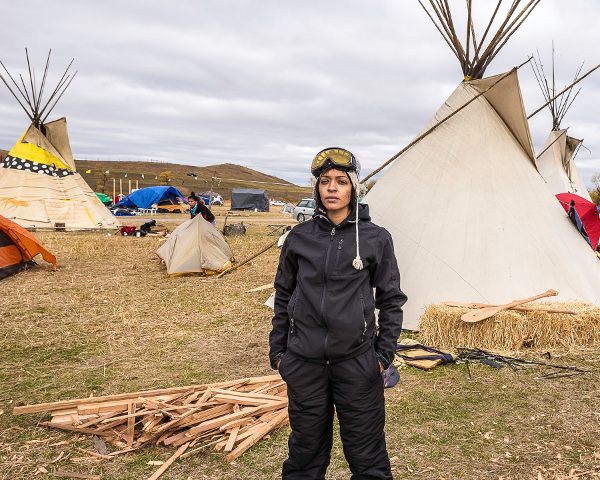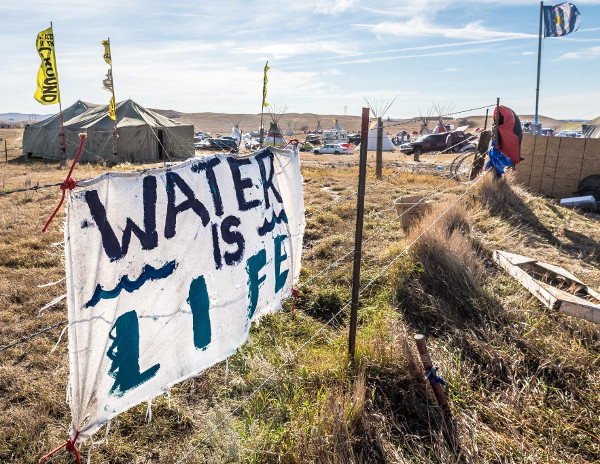
PHOTO/BRETT JELINEK, OLAFIMAGES.COM
By Nirvana Anulekha, as interviewed by Adam Gottlieb, Diana Zwinak, and Brett Jelinek
The following are excerpts from an interview with Nirvana Anulekha (Muscogee Creek Nation), Water Protector and Journalist with Indigenous Live Movement, at the Oceti Sakowin camp in Cannon Ball, ND, in October, 2016.
We’re uniting as people of culture, not people of color. And that’s powerful. And not yet have we been recognized, but this will show that recognition of people of culture, no longer the separation of people of color. No white, no Black, no red, no yellow. Eventually we will be seen as people of culture. All of us. And that’s the way we need to be treated, because we’re human beings, you know?
There’s no need for division. We all have culture, whether you’re from Europe, or whether you’re from Africa, or Asia, or even America—American culture. And that’s the biggest issue we have right now, what is American culture? And that’s what we have to face and we have to see the truth . . . not pull the wool over people’s eyes about what history we are really sharing.
And once we tear down those lies and start beginning to see the truth, we will be able to walk more in unity and solidarity together, because we’re healing from the trauma together. Because we all carry the trauma from our ancestors. Whether you’re European or Native, whether you’re African American, or whatever, we all have to deal with the trauma. That’s where we need to break the cycle now, to move forward to build as people of culture, not people of color. That’s all we can do.

PHOTO/BRETT JELINEK, OLAFIMAGES.COM
[We need] true American culture. There’s a lot of trauma here. But what we’re doing is gonna break that cycle. We need to continue doing that because it’s not just for water. It’s for the planet, it’s for the people. It’s for humanity. It’s for everything. This very movement, what we’re doing, the way that we move, is through sacredness. That’s important. This right here is gonna change the world, and I tell you, I feel it. It may not be easy right now, you know, you don’t always see the light at the end of the tunnel, but there is.
So that’s the way we have to continue to move. And it’s worth the sacrifice, whether we die, or whether we live to tell the stories. Whatever. It’s totally worth it. Because it’s not just us here. It’s not just this physical group here. It’s what’s after . . . And we owe it to our ancestors. Whether our ancestors were a part of what was wrong, or whether your ancestors were a part of what was good, I think we owe it to our ancestors to unite in solidarity, to change this planet for the better.
Cuz this is our life source here. This is a living organism, it breathes, and we breathe. Just like the blood veins in our body, just as the rivers of this earth, we are one in the same. So it’s important that we respect one another as brothers and sisters, and it’s important that we respect this planet as if she were our mother. Cause she is.

